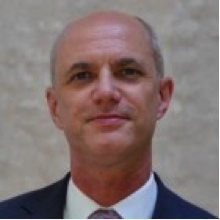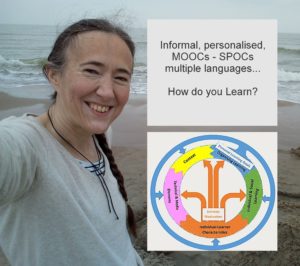Honorary President BRIAN HOLMES (European Commission, Belgium)

The European Commission, Belgium
Dr. Brian Holmes is the Director of the Executive Agency for Education, Audiovisual and Culture (EACEA) in Brussels. The Agency is responsible for managing certain strands of the European Commission’s programmes for Erasmus+, Creative Europe, Europe for Citizens and EU Aid Volunteers.
Brian has been working on education and training for many years at the European Commission. He has been involved with European policy for innovation and lifelong learning, supported by ICT, and was responsible for co-ordinating the EU’s eLearning Programme.
Brian has an MBA from a Paris business school and has been a tutor with the UK’s Open University Business School, for the MBA module on Managing Knowledge. He holds a PhD on technology enhanced learning with the University of Lancaster in the UK.
Mastering Diversity through Innovation: Insights into the European Union’s Support for Language Learning in the Digital Age
Keynote speaker INGE DE WAARD (Open University, UK)
Biography

You can see all her information in her famous blog.
MOOCs: between Realities of Informal Learning and Myths of Personalisation
Informal learning is a common way of acquiring knowledge. We select additional layers of information to learn from while we grow up, and we engage in informal learning right up to our last cognitive interest at whatever age we might achieve. Informal learning happens everywhere, we can even embed it alongside formal language education. One such study looks at secondary school children improving their language skills, practicing social learning, and increasing their critical thinking capacities while self-selecting their preferred MOOC content within CLIL classes. Inge de Waard will also illustrate that we, as adults, engage in five specific components when learning in a technology supported environment, and that intrinsic motivation and personal learning goals push informal learning forward. In this global and connected world we seem to have more choices than ever before to learn whatever we like and to engage in personalised learning. Unfortunately, this is not the case. Others seem to increasingly decide which informal choices we have, while propagating the concept of personalisation.
Keynote speaker AGA PALALAS (Athabasca University, Canada)
Biography

Dr. Agnieszka (Aga) Palalas is an Assistant Professor in the Centre for Distance Education at Athabasca University, Canada. She is an internationally recognized expert with more than 25 years of experience in adult learning, e-learning, m-learning, instructional design, software development, and innovative technologies. Her expertise in mobile-assisted language learning stems from years of practice and research in the fields and a formal background in applied linguistics, second language acquisition, technology-assisted teaching and learning, online education, as well as instructional design. In her experience as an educator, she has taught in the classroom and online, reviewed and designed curriculum, provided professional development, worked as a programmer and instructional designer for mobile, online, F2F, and blended learning programs. Aga has designed and developed numerous mobile apps and artifacts, including apps for English pronunciation. She has taught in many diverse cultural settings, including but not exclusively in Canada, USA, China, Mexico, Poland, India, and Ghana.
She is President of the International Association for Mobile Learning (IAmLearn) and the International Association for Blended Learning (IABL). She is also on editorial review boards of several journals in the field of m-learning, distance education, educational technology, and language learning. Her current research interests include mindfulness in online and mobile learning, MALL, the pedagogy of m-learning, m-learning design principles, and m-learning in diverse educational and cultural contexts.
As an academic and teacher at heart, Aga has participated in multiple local and international interdisciplinary projects aiming to innovate mobile learning and make learning accessible to all. She has published widely on the topic, including recently co-edited book “The Intentional Handbook for Mobile-Assisted Language Learning” (soon to be published in Chinese) and numerous peer-reviewed articles and chapters on mobile learning. A popular keynote speaker, Aga principally discusses issues pertaining to mobile-assisted language learning, m-learning design and research, and recently, mindfulness in education.
Being a “whole person” believer and a systems thinker, Aga has dedicated over a decade to exploring ways in which technology-assisted learning can empower learning in ways that promote the unbroken wholeness of the learner, even in this era of civilization that often emphasizes competition, separation into parts, and fragmentation. Her personal practice and study of mindfulness inspired Aga to explore the science behind the practice and the outcomes she observed. After taking courses in neuroscience, quantum physics, and applied mindfulness, Aga embarked on interdisciplinary research exploring the role of mindfulness in online and mobile learning. It is the findings of this research that she is going to share with the conference participants in her keynote presentation.
Mindfulness for human-centered digital learning
Mindfulness has gone from being a well-kept secret to an increasingly popular practice that has attracted the attention of researchers from institutions such as Harvard, UCLA, and Yale. Latest discoveries in neuroscience combined with over 35 years of scientific research in mindfulness are bridging the science and practice of mindfulness, and pointing to multiple benefits of the practice. As a result, mindfulness training and techniques have been introduced in hospitals, corporations, government and many other organizations, as well as schools. The list of evidence-based benefits of mindfulness for teaching and learning is promising, particularly in the context of our digital lives often characterized by information overload, fast pace, distraction, and the feeling of being digitally overwhelmed. Applying mindfulness strategies can promote a learning environment in which the learner flourishes academically, emotionally, socially…and grows as an individual. These whole-person techniques tap into our deep inner resources. They respect our potential and our natural needs while supporting the development of resilience, focus, and well-being. These and other implications of mindfulness in education will be addressed in this keynote.
In Mindfulness for human-centered digital learning, Aga Palalas will combine observations from her personal mindfulness practice with the latest mind-brain research and her own study findings on mindfulness in mobile and online learning. After presenting the highlights of related research from the fields of neuroscience, human development, and education, she will briefly describe how mindful practices can foster personal well-being, interpersonal relationships, and learning. Aga Palalas will then focus on creating environments conducive to student learning and on designing language learning that cultivates mental and emotional fitness of learners and teachers. Examples of mindfulness techniques will be shared along with resources available to support mindful practices. While there is a growing body of scientific evidence identifying the advantages of mindfulness, there are also strong critiques of the movement whose voices will not be ignored in this presentation. All in all, Aga Palalas will draw a comprehensive picture of the concept of mindfulness and its impact on human-centered digital learning.